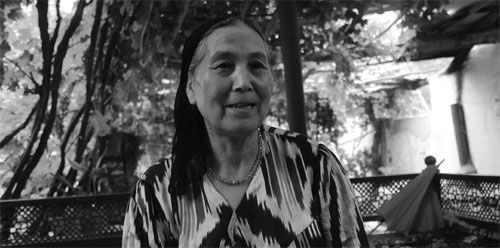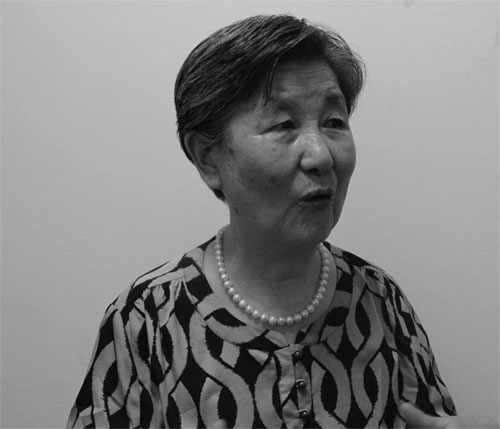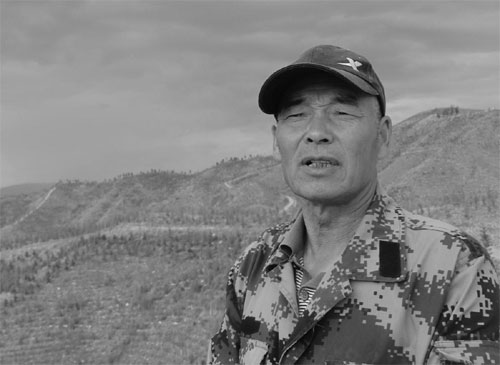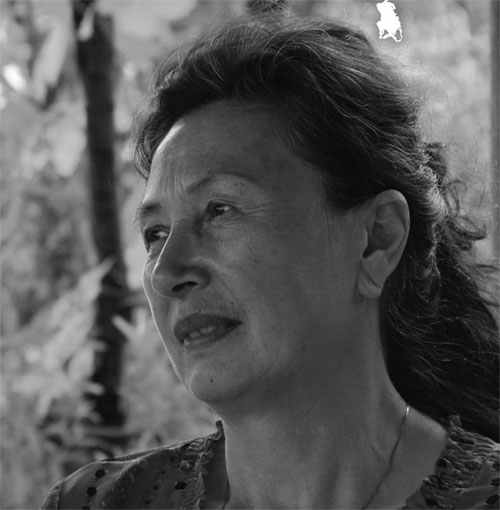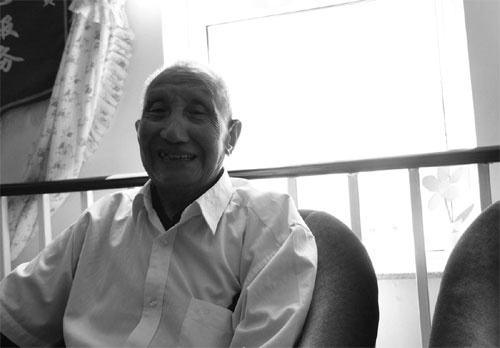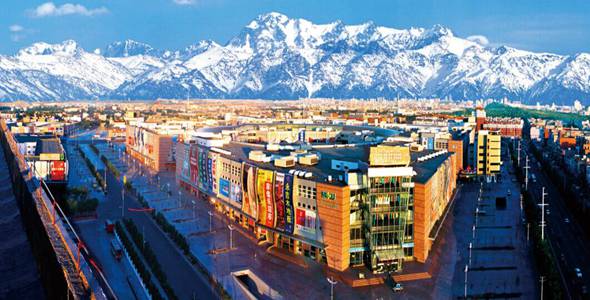Eyewitness: The changing face of Xinjiang
( China Daily USA )
Updated: 2015-07-24
|
|||||||||
This year marks the 60th anniversary of the establishment of the Xinjiang Uygur autonomous region, so China Daily spoke to some of the region's oldest residents, and asked them to share their personal stories and their visions for the future, Xu Wei reports.
Ajiahan Wuxur, 68, lives in Grape Valley in the prefecture-level city of Turpan.
Ajiahan Wuxur never imagined that her homemade pilaf would be so well received by her guests - her family had always told her that the dish was delicious, but confirmation from outsiders was a welcome surprise.
Last year, the 68-year-old, one of the oldest entrepreneurs in Turpan's Grape Valley opened a restaurant in response to a local government call for residents to boost tourism by providing catering services and accommodation for visitors.
"Before, the family simply relied on a few grape vines in the valley for our livelihood, but there was no way to raise our income because grape production was regulated every year," she said.
Last year, she and her family started the restaurant, along with another five households in the valley - which is also known as the "Home of Grapes" - aided by a tourism-development program organized by the local authorities. In addition to Ajiahan Wuxur's pilaf, the restaurant specializes in local noodles, kebabs and nan bread.
The family eatery received more than 500 guests in its first year, and the number more than doubled to 600 in the first six months of this year, allowing Ajiahan Wuxur to repay the bank loans she had taken out to equip her home for the catering business.
The new facilities, including a newly built kitchen and an indoor toilet, are important because they raise the bar for services, she said.
To ensure a steady number of customers, the Grape Valley authorities have introduced local households to travel agencies to increase the flow of tourists to the village.
"I just hope we can maintain and develop our tourism industry so our standard of living will continue to improve," Ajiahan Wuxur said.
She can't even begin to describe the many changes Turpan has undergone during the last 60 years. "When we were children, we were told about the wonderful lives and times of the old emperors, but right now, I think our lives are even better than theirs were," she said.
Zhao Yanhua, 76, lives in the Xudong community of Urumqi, the regional capital. She is a former procuratorate officer at the 10th Division of the Xinjiang Production and Construction Corps, which was stationed in Beitun city, Altay prefecture.
In 1955, when she was 16, Zhao Yanhua left her hometown in Hebei province and, along with about 1,000 of her provincial peers, boarded a train to Wuwei, Gansu province, where young people from across China were being recruited for the Xinjiang Production and Construction Corps as part of efforts to develop the autonomous region's vast uninhabited areas.
The recruits rode in trucks to Urumqi, where they received several months' training before being dispatched to different areas across Xinjiang. "There were no restrooms along the way, and we girls had to use our clothes to shield each other during toilet breaks," Zhao recalled.
In those days, Urumqi was vastly different from the city visitors see now. "The area was not connected by the railway at that time, and there were few vehicles on the streets," she said.
However, Zhao's passion to serve her country quelled all her frustrations with the living conditions. "I requested to be sent to the most difficult areas, but my family objected. My mother broke down in tears," she said.
During their time in the corps, she and her comrades lived in desert pit houses - basically deep holes dug into the sand and covered with cloth - and thatched shacks, and once even attempted to raise chickens in their bedrooms because there were so far from any towns, and therefore, markets.
"Even when I was pregnant, I still had to carry the water to the house for daily use. Once I fell because the ground was so slippery," Zhao said.
She retired in 1991, and moved to Urumqi three years later to be closer to her daughter and two sons who already lived in the city. Her husband, a former soldier in the People's Liberation Army, died in 2009.
"I never regretted my choice, even during the most difficult times. In our day, the Party's demands were the ultimate call, and I still believe they were the right calls," she said.
"I only hope for good health so I can see more of the world in the future," she said.
Xu Xiuqi, 63, came out of retirement to oversee a tree-planting project on the barren mountains in Altay prefecture.
Xu, a native of Ganyu, Jiangsu province, arrived in Altay in 1971 after his uncle helped him find a job with the city's forestry and landscape authority.
"We never dreamed the barren mountains would be reforested one day because it was so difficult to plant trees and nurture them to survive the arid conditions," he said.
In the late 1980s, the forestry authority began reforesting operations in the mountains surrounding the city, but the project was halted after a change of leadership in the local government. However, when new officials took office in 2009, the project started again and Xu was reemployed as the main supervisor.
His job involves traveling around the mountains by motorbike to oversee the work and ensure that every sapling planted will survive the harsh climate. "My job is to find the problems, to check of the trees have been properly cared for or not. If I can solve a problem, I will. If not, I report the problem to the authorities," he said.
So far, 70,000 trees have been planted on 3,330 hectares on the barren mountains.
Xu is driven by his passion for the work and by posterity. "We need to create wealth for our future generations. I would be immensely proud if my grandson pointed to the mountain and told people that it was reforested by his grandfather," he said. "I will do it, even without pay, just as long as my body allows me to."
Galina Bagdanava, 62, is a former worker at a pharmaceutical company in Tacheng, Ili Kazakh prefecture.
Galina Bagdanava has raised a multi-ethnic family with her Manchu husband. Her eldest son married a Han woman, while her second son has a Mongolian girlfriend. The family's ethnic mix seems appropriate for a woman whose mother came from the former Soviet Union and whose father was Han Chinese.
Her family has lived in Tacheng since 1954. "We lived through food shortages in the late 1950s and early 1960s, and even had to rely on wild plants for food. Thankfully, no one I knew died during those times," she said.
"I was a young girl during the cultural revolution (1966-76), and had to quit school for three years," she recalled.
Although Bagdanava only attended high school for two years - and one of those was spent helping to dig tunnels for the military - she was able to find a job at a local pharmaceutical company. She met her future husband at a gathering hosted by a friend.
Her family celebrates all the festivals of its different ethnic groups, and as a result, the older women are adept at preparing and cooking a wide range of ethnic dishes.
The only cloud on the horizon is Bagdanava's concern that her daughters-in-law have neither the inclination nor time to learn the traditional skills of women in the Russian ethnic group, including how to make jam and cheese.
"I am worried that these ancient skills might be lost one day," she said.
Shen Fusheng, 86, is a retired soldier and former transport worker for the Xinjiang Branch of PetroChina Xinjiang Co. He lives in Karamay, a prefecture-level city.
Shen arrived in Xinjiang under the command of Wang Zhen, a general in the People's Liberation Army who later became one of China's leading political figures.
He and his peers endured harsh living conditions as they sought to build a city in the desert after oil was discovered in the area in 1955. "There was nothing, just the strong winds and the desert," Shen said, as he recalled life at the start of the construction process, when the workers had to live in pit houses to avoid the biting sand carried by the wind.
Shen, now a resident of a nursing home in Karamy, said that when looks back over his long life he has no regrets. "In the olden days, an old person like me would have suffered a lot, but I've benefited from the improvements in the region's nursing homes," he said.
|
Ajiahan Wuxur, 68, lives in the Frog Alley of Grape Valley, Turpan, Xinjiang Uygur autonomous region. Photos by Xu wei / China Daily |
|
Zhao Yanhua, 76, lives in the Xudong community of Urumqi. She was a former procuratorate officer at the 10th Division of the Xinjiang Production and Construction Corps, which was stationed in Beitun city of Altay prefecture. |
|
Xu Xiuqi, 63, is a retired forester who was reemployed to help plant trees in the barren mountains in Altay, Xinjiang Uygur autonomous region. |
|
Galina Bagdanava, 62, is a retired worker at a local pharmaceutical company in Tacheng, Xinjiang Urgur autonomous region. |
|
Shen Fusheng, 86, is a retired soldier and former transport worker in the Xinjiang Branch of PetroChina Xinjiang Co Ltd in Karamay, Xinjiang Uygur autonomous region. |
(China Daily USA 07/24/2015 page5)

